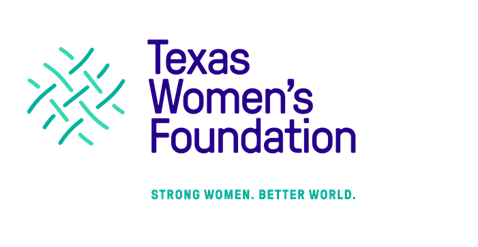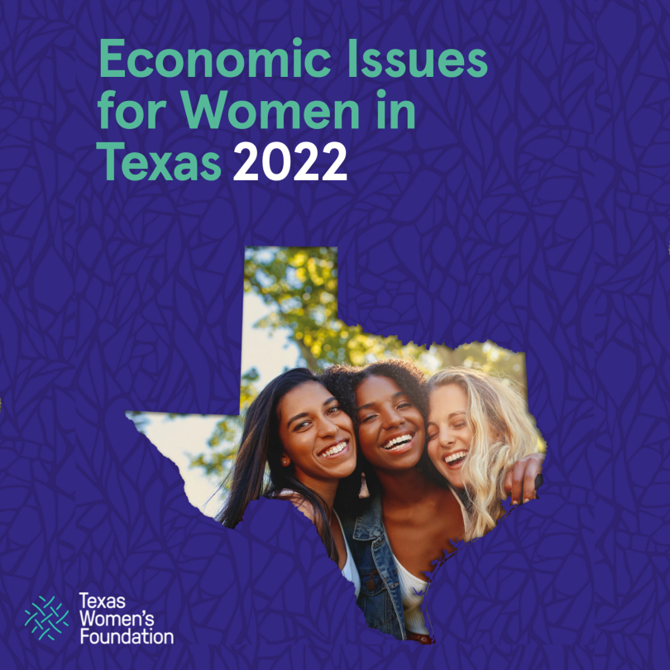By: Plamedie Ifasso
A new report finds that the pandemic worsened existing challenges women and girls in Texas face in achieving financial security.
In the mid-term update of its Economic Issues for Women in Texas report, Texas Women’s Foundation examines the impacts of COVID and related economic downturns on women and their families.
The foundation, in its previous studies, focused on child care, health insurance, housing and education as key pillars of economic security. The 2022 report continues the focus on those four components, analyzes the pandemic’s effects on new areas such as caregiving and digital access and highlights policy recommendations.
“What the report showed us here in 2022 is that the issues that were problems for women and girls have been heightened by COVID (and) have not gotten any better,” Texas Women’s Foundation chief strategy officer Dr. Dena Jackson said. “Hopefully, they are also now being seen in a stronger light by a broader section of the population and businesses (and) elected officials.”
Child care costs continue to rise, the study finds. The average cost for year-round child care increased by 16% from 2018 to 2021.
For a woman making a median income of $41,687, full-time infant care can cost up to 21% of her earnings. Childcare for Black and Hispanic women earning the median income can cost up to 21% and 27% of their income, respectively, compared to 16% for Asian women and 17% for white women.
The report also found that the pandemic led to a decrease in childcare availability. Between July and October of last year, about a third of women in the state with children under five were unable to find childcare arrangements due to centers being closed, unavailable, unaffordable or because of safety concerns.
Nearly 30% of households that couldn’t find childcare arrangements had to cut work hours to care for their children, and 26% used sick days or vacation days. A quarter of respondents didn’t look for a job due to challenges finding child care, and 22% took unpaid leave.
“It’s a big issue for women who are trying to work,” Jackson said. “It’s an issue for employers, especially as you look at things like paid time off. COVID comes along, and you have a whole other sector of the population that is all of a sudden having to take time off for work. It’s not just lower income families anymore, so hopefully, once again, it’s shining a light on this issue in a better way that may take us to a stronger future for women across the economic spectrum.”
Texas continues to lead the nation in uninsured rates. More than a fifth of women in the state between the ages of 25 and 65 don’t have health insurance, twice the national rate for women in this age group. According to the report, the state ranked last for women’s health insurance coverage.
For the upcoming legislative session, Jackson said the foundation plans to advocate for expanding Medicaid, including increasing postpartum coverage from six months to a year and creating an insurance program to serve low-income Texans.
About 400,000 uninsured women living below the poverty line don’t have affordable health coverage options and are below the income level required to access ACA health insurance subsidies, and with expanded Medicaid, the study argues these women would have coverage.
The mid-term study reports eviction levels in major markets like Dallas and Fort Worth are approaching pre-pandemic rates. Between March 2020 to March 2022, Dallas had 44,082 evictions, and Fort Worth saw 40,681 evictions.
Austin, on the other hand, had 4,312 evictions during the same period. Jackson said in the upcoming legislative session, the foundation plans to push for stronger tenant protection policies.
“The reason (Austin’s) evictions are so much smaller is because they have tenant protections, and a very simple issue around tenants is their right to have legal counsel,” Jackson said. “…Just knowing that you have somebody looking at the legal document and making sure that the landlords have done what is appropriate and legal will help prevent eviction and help increase housing stability. Landlords do have the right to evict people. They do have the right to have their rents collected. They have bills, but you want to make sure that the law is on both sides.”
In order to build a stronger workforce, Texas needs to invest in making child care, education, health insurance and housing more accessible and equitable, Jackson said.
“We do this because we care about women, but the rest of our tagline is for a stronger Texas for all,” Jackson said. “Our goal is you want everybody that can to be in the workforce, paying taxes and being a part of our vibrant Texas as you look at the demographics, as you see the increase in young women of color (and) in young Hispanic women. This is the future of Texas. If we do not invest in things like child care and access to education, then we’re not going to have the workforce of tomorrow that we truly need.”

